Amir Khan traces his journey, from Olympic medalist to prize fighter
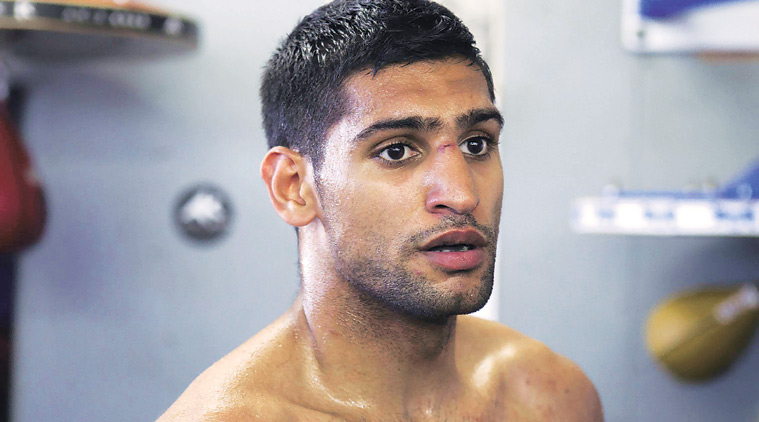 Amir Khan has a 34-3 professional record.
Amir Khan has a 34-3 professional record.
About a decade before Vijender Singh put a distinguished amateur career behind him in an attempt to carve out a career as a professional, another individual with heritage from the subcontinent had made the same shift.
Amir Khan, was eighteen when he made the decision in 2005. A year before, the then 17-year-old British-Pakistani had become the youngest from his country to win a medal – a silver in the lightweight category – at the 2004 Olympics.
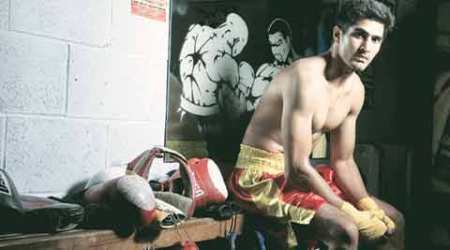 In his second innings, Vijender Singh searching for second wind
In his second innings, Vijender Singh searching for second wind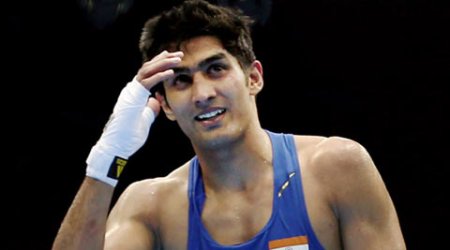 Vijender Singh moves HC to retain Haryana police job
Vijender Singh moves HC to retain Haryana police job Vijender Singh, boxer, actor... ex-Haryana cop?
Vijender Singh, boxer, actor... ex-Haryana cop?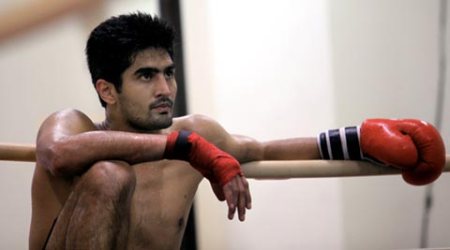 Vijender Singh turns pro: Everything you need to know
Vijender Singh turns pro: Everything you need to know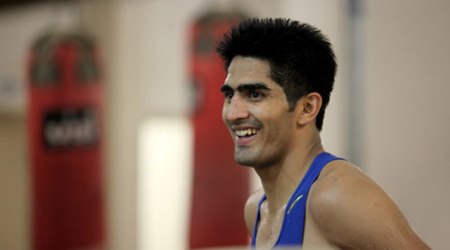 Why Vijender Singh could be about to throw in the towel on his amateur career
Why Vijender Singh could be about to throw in the towel on his amateur career- Making the upper cut
It’s early days yet for Vijender, who has only the one fight to his name, but if his career can chart anywhere close to that of Khan, he would consider it a success. Khan, now 29, has a 34-3 professional record with title belts across three weight division and is reportedly one of the highest paid fighters in the world.
Unlike Khan, Vijender made the switch to prizefighting relatively late at nearly 30. It was a hard choice and he faced criticism for not giving the Olympics another go.
Khan knows how that feels. After his path-breaking silver in Athens, he too wanted to improve the color of the medal. “Of course, I thought about it,” says Khan, currently in New Delhi to attend a friend’s wedding.
“The Olympics were the biggest thing to happen in my life. I went to the Olympics as an unknown. But once I won the medal everyone wanted to see me, take pictures of me. My street was full of people screaming, dancing and playing drums. It was like someone’s wedding,” says Khan.
Indeed Khan waited for a year before he made the call on his career. It was time well spent. “I rematched the guy (Cuba’s Mario Kindelan) that I had lost to. So I didn’t have any regrets when I left the amateurs,” he says.
What also nudged him was a massive deal signed with the promoter Frank Warren. “I thought to myself. What if I waited four years till the next Olympics and hurt my hand. I would have no contract, and I would be injured and my boxing career would be over,” he says. As it turned out Khan injured his right hand in just his second fight. “Luckily I had secured myself and was able to get the best people to treat it. I might not have had that option if I was still an amateur. I guess it was destiny,” he says.
Khan uses ‘destiny’ a lot during his conversations and a look at the Bolton boy’s storied career must cause even the most cynical to believe. Khan doesn’t care so much about the million-dollar pay cheques, flashy cars and massive houses anymore.
“When I was young I really wanted the Lamborghinis and Bugattis but after I had it all, it doesn’t seem all that much. You can only drive one car at a time,” he says.
What he does care about is the fact that he can meet his childhood heroes on level terms. “I was a fan of Mike Tyson and Naseem Hamed and now these guys come and say they like the way I fight. They talk to me like they are like fans of me. You have to act cool like it isn’t anything. But on the inside you are like yeah.. Mike Tyson is chilling with me. And you pinch yourself to make sure it is real,” he says.
Beyond hanging out with his idol, Khan adds that Tyson gave him one of the best pieces of advice. “He told me to do a lot of running because stamina is everything,” says Khan, who is known as one of the fittest boxers on the professional circuit.
But Tyson also served as an example in another life lesson, this one given by his parents. “When I was eighteen, I was spending money very carelessly and my family told me to think that I was shedding my blood for it. I learnt to respect money from them. Its a very Asian thing I guess. I understood that when I saw someone like Tyson who had all the money in the world, but who went broke. It’s saddening. I don’t want it to happen to me,” he says.
More prudent financially, Khan says his career goals have moved beyond simply winning title belts. “Now I just want mega fights with the biggest names,” he says. Its easier said than done.
A long expected fight with Floyd Mayweather fell through this year, and Khan is currently chasing Manny Paccquiao for his career ender next year. Khan admits the running around wasn’t something he planned on doing when he started his career. “When I was young I thought boxing was about the best fighter fighting the best fighter. Now its’ lawyer versus lawyer and hoping your lawyer doesn’t do something to kill the deal,” he jokes.
Regardless when his next fight happens, Khan admits it will be a challenge. “All my fights are hard fights now. In the first half of my career, I was expected to win all my fights. Now every fight is fifty fifty,” he says. Khan reckons this is true for Vijender as well.
“It is the same for Vijender in his first 15 to 20 fights. If he loses now, it is going to be hard for him to come back,” he says. But Khan doesn’t believe this will happen. “Vijender is a strong lad and a very good and clever fighter. Success depends on hardwork\ dedication and discipline. If he does that I think he will get far,” Khan says.





